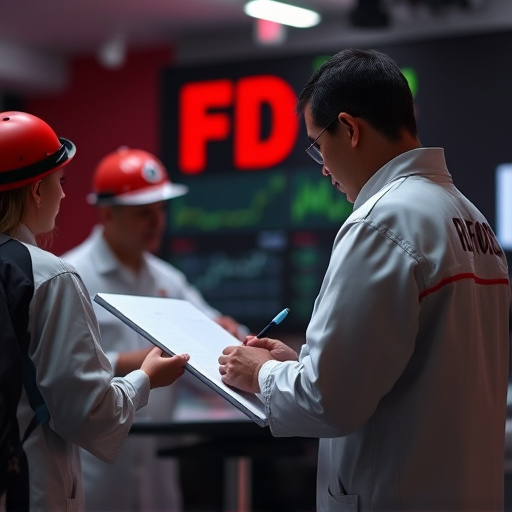Sydney offers immersive CFD education, leveraging local engineering expertise and diverse industries. Students build a strong foundation in fluid mechanics, math, and programming, learning advanced software for simulations. Practical experience includes real-world cases like industrial optimization and weather prediction, fostering employability and deepening understanding of CFD's impact.
“Embark on a transformative journey into the heart of CFD (Computational Fluid Dynamics) education in Sydney. This comprehensive guide, designed for both beginners and enthusiasts, outlines a structured learning path. From ‘Unlocking CFD’ to mastering ‘Practical Applications’, we navigate the crucial steps for success. Understand the essential prerequisites, explore the learning process, and discover how to apply these powerful skills in Sydney’s dynamic landscape. Elevate your CFD education today.”
- Unlocking CFD: A Sydney Journey Begins
- Setting the Stage: Prerequisites for Success
- Step-by-Step: The CFD Learning Path
- Practical Applications: Putting Skills to Use in Sydney
Unlocking CFD: A Sydney Journey Begins

In the heart of Sydney, a transformative journey into the realm of Computational Fluid Dynamics (CFD) unfolds, promising to revolutionize engineering and design practices. This educational odyssey begins with an introduction to CFD’s intricate world, where complex fluid flows are demystified through powerful computational methods. The first step involves breaking down intricate concepts into digestible components, ensuring a solid foundation for aspiring CFD specialists.
Sydney’s vibrant engineering community serves as the perfect backdrop for this learning adventure. Students delve into case studies of real-world applications, exploring how CFD enhances industries from aerospace to architecture. This hands-on approach, coupled with cutting-edge software and mentorship from industry experts, empowers learners to unlock the full potential of CFD education.
Setting the Stage: Prerequisites for Success

Before embarking on your CFD (Computational Fluid Dynamics) education journey in Sydney, it’s essential to set the stage for success by understanding some key prerequisites. CFD is a complex field that demands a solid mathematical and scientific foundation. Students should be comfortable with calculus, linear algebra, physics, and mechanics, as these concepts are fundamental to navigating the intricacies of CFD simulations. A strong background in programming languages like Python or C++ will also significantly enhance your learning experience, as many CFD tools and software rely on these languages for customization and advanced scripting.
Additionally, developing critical thinking and problem-solving skills is paramount. CFD education involves interpreting complex data, identifying physical phenomena, and applying appropriate models to solve real-world problems. Therefore, a keen interest in science, engineering, and mathematics, coupled with excellent analytical abilities, will be invaluable assets as you delve into the world of CFD education in Sydney.
Step-by-Step: The CFD Learning Path

Embarking on your CFD (Computational Fluid Dynamics) education journey in Sydney involves a structured learning path. Here’s a step-by-step guide to help you navigate this dynamic field:
1. Foundational Courses: Kickstart your CFD education with introductory courses that cover fundamental fluid mechanics, mathematics, and programming skills essential for CFD simulations. These courses lay the groundwork by providing deep insights into the principles governing fluid flow.
2. Introduction to CFD Software: Familiarize yourself with popular CFD software tools used in industry and academia. Learn their interfaces, basic functionalities, and navigation techniques. This hands-on experience ensures you can efficiently utilize these resources for complex simulations down the line.
3. Basic CFD Simulations: Start with simple flow problems like laminar and turbulent flow in channels or over flat plates. These initial simulations help solidify your understanding of setting up cases, defining meshing strategies, and interpreting results from CFD software.
4. Advanced Topics: Progress to more intricate topics such as unsteady flows, multi-phase flows, heat transfer, and complex geometry modeling. As you tackle these challenges, refine your problem-solving abilities and gain expertise in crafting sophisticated CFD models.
5. Real-World Applications: Apply your knowledge to practical cases drawn from various industries like aerospace, automotive, or environmental engineering. This step bridges the theoretical aspect of CFD with its practical implementation, making your learning experience more impactful.
Practical Applications: Putting Skills to Use in Sydney

In Sydney, CFD (Computational Fluid Dynamics) education transcends theory by offering hands-on experience with real-world applications. After acquiring foundational knowledge in CFD principles and software through structured courses, students are equipped to tackle practical challenges unique to Australia’s diverse landscapes. From optimizing industrial processes in the bustling metropolis to predicting weather patterns along the coast, CFD skills prove invaluable.
Sydney’s vibrant engineering and research communities provide ample opportunities for graduates to apply their CFD expertise. Whether collaborating with local industries on innovative designs or contributing to environmental studies, practical applications of CFD education empower individuals to make meaningful impacts. This real-world exposure not only enhances employability but also fosters a deeper understanding of how CFD can drive progress across various sectors in the heart of Australia’s cultural and economic hub.
The journey towards becoming proficient in Computational Fluid Dynamics (CFD) begins in Sydney with a structured approach to learning. By understanding the fundamentals and building a solid foundation, individuals can navigate their way through the complex world of CFD simulations. The step-by-step learning path outlined in this article provides a roadmap for aspiring CFD experts, ensuring they are equipped to tackle real-world challenges in Sydney’s dynamic engineering landscape. With the right education and practical applications, the possibilities for innovation and problem-solving using CFD are truly vast.
